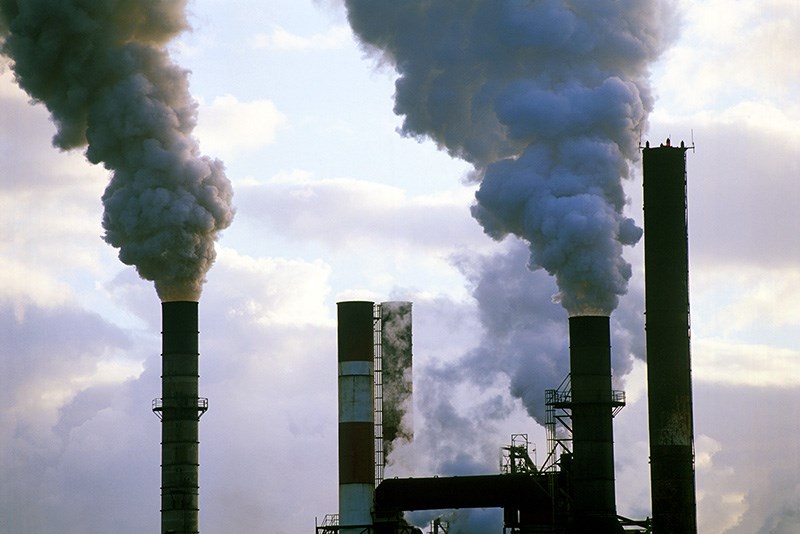You may not be aware of a rather hasty public consultation currently occurring with regard to B.C.’s Climate Action Plan.
You can get more information and fill out an online survey at www.engage.gov.bc.ca/climateleadership. The survey must be completed by 4 p.m. on Monday, Aug. 15, although additional comments can be submitted as late as Sept. 14.
This initiative is certainly timely as we are experiencing an unusual drought in B.C., which is thought by many to be related to global warming. The world, as we know it, faces an uncertain future with more extreme weather events if governments around the globe fail to take effective action to reduce fossil fuel emissions.
Scientists calculate fossil fuel emissions since the beginning of the industrial revolution (with the bulk of them emitted in the last 60 years) have already raised global temperatures by one degree Celsius. If we wish to avoid the havoc of disrupted ecosystems, severe weather and social unrest, we must attempt to limit global warming to a rise of no more than two degrees celsius in total.
To achieve this, scientists estimate carbon dioxide levels in the atmosphere should not be allowed to reach more than 450 ppm (parts per million), an increase of 170 ppm beyond the pre-industrial base level of 280 ppm. If we do nothing and stick with our current habits, carbon dioxide could rise to an unthinkable 700 ppm by 2100 with an accompanying four degree rise in average temperature and one metre rise in sea level.
The longer we collectively deny global warming is happening and procrastinate about reducing fossil fuel use, the harder it will be to stay within this safety zone of 450 ppm. We will do a huge disservice to future generations if we fail to reduce our fossil fuel emissions. Our grandchildren will surely look back upon us as the most selfish generation that ever existed. So, isn’t it time to take some real action?
Whether we like it or not, we’ve got a carbon diet to which we must adhere for the health of the planet. If we are to achieve a rise of no more than 450 ppm of carbon dioxide, then every country in the world must switch to using renewable (carbon-free) energy sources for most of their energy needs — and we must to do it soon.
Right now, world emissions total 37 GT (giga tonnes) per year. We need to limit our long term cumulative emissions to no more than a total of 1000 GT to stay within that 450 ppm range. That gives us only 27 more years if our carbon emissions stay at the current rate before we hit a brick wall of disaster. Procrastination, it seems, is no longer a viable option.
It’s estimated that two-thirds of our fossil fuel reserves must stay in the ground to avoid catastrophic warming. That means selectively using the cleanest fossil fuels and avoiding extraction of the truly carbon-intensive ones like the tar sands. So, it’s short-sighted and foolish to propose building two pipelines across B.C. to export tar sand-derived diluted bitumen around the world.
The LNG industry in B.C. holds very limited promise only if the government ensures carbon pollution is minimized to the greatest extent possible. Considerable improvements will be required before this is achieved. B.C.’s Clean Energy Act essentially crippled BC Hydro by prohibiting this Crown corporation from developing any renewable sources of electricity other than Site C.
It seems to me that BC Hydro should be allowed to lead the way in the construction of solar and wind-derived electricity facilities in this province.
B.C.’s innovative carbon tax, introduced in 2008, also needs some updating so that it can be more fair and effective. The rate has been frozen since 2012 and will apparently remain so until 2018.
This seems truly misguided as is the fact that it applies to only 70% of greenhouse gas emissions in B.C. We need a level playing field with no industry getting special treatment. With transportation accounting for 37% of our emissions, it is surprising the government is not doing more to provide adequate public transit instead of building more bridges for vehicles.
The survey allows participants to allocate points between four or five options that could help us reduce greenhouse gas emissions with regard to transportation, buildings, the economy and “what we value.” One option in every category is asking government to implement regulations and incentives. To my mind, we urgently need government to implement regulations and create incentives for change if we are to achieve the projected 33% reduction in emissions by 2020 (compared to the 2007 level) and 80% by 2050 as wisely mandated in our Climate Action Plan.
Like never before, we must demand that government provides leadership. Based on the input received, the government intends to develop a draft plan which will be released for public comment in December. I hope everyone will participate in this important survey.



